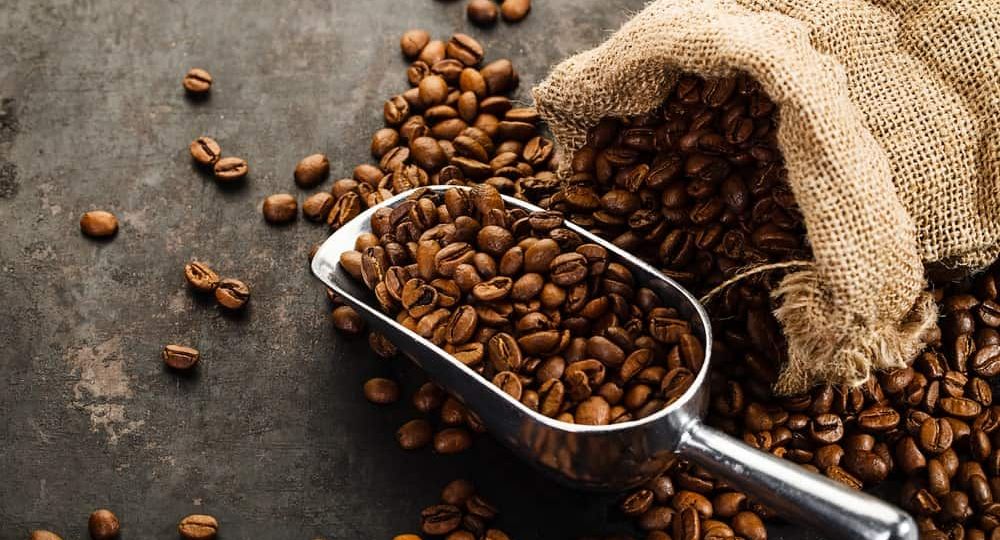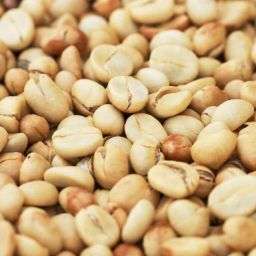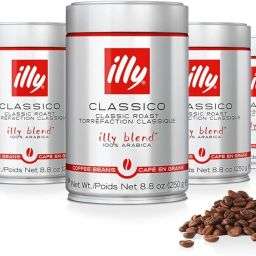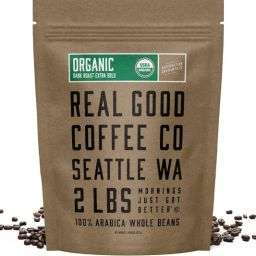
Decaffeinated coffee offers an alternative for those seeking the rich flavor of coffee without its natural stimulant, caffeine. Its popularity stems from the desire to enjoy coffee’s sensory experience without the effects caffeine can have on the body, such as restlessness or insomnia.
Decaffeination processes remove most of the caffeine content from coffee beans, making it a preferred choice during the evening or by those sensitive to caffeine. Despite the removal process, decaffeinated coffee retains the beloved aroma and taste that coffee enthusiasts seek.
Overview of How Decaffeination Works
The decaffeination process involves removing caffeine from coffee beans while ensuring the beans’ flavor and essence remain intact. This process is typically conducted while the beans are still green, before roasting. The goal is to extract caffeine with minimal impact on the beans’ natural oils and flavor compounds, which are responsible for coffee’s distinctive taste.
Various methods exist, each using different means to achieve this goal, but all aim to reduce the caffeine content to the regulated 3% or less of the bean’s weight.
Methods of Decaffeination
Several primary methods are employed in the decaffeination of coffee beans, each with its unique approach:
- Swiss Water Process: This chemical-free method relies on solubility and osmosis to decaffeinate coffee beans. Beans are soaked in hot water to dissolve caffeine, then the water is passed through a charcoal filter which catches caffeine molecules while allowing oils and flavor molecules to pass through. The caffeine-free water is then used to soak new beans, repeating the process until the beans are 99.9% caffeine-free. This method is highly praised for maintaining the bean’s flavor integrity without the use of chemicals.
- CO2 Process: The CO2 method uses pressurized liquid carbon dioxide to extract caffeine. Coffee beans are placed in a chamber where CO2 is forced through the beans at high pressure, dissolving and removing the caffeine. The CO2 is then removed, and caffeine with it, leaving behind the flavor-rich, decaffeinated beans. This method is efficient and can be adjusted to control the level of decaffeination, making it a favorite among many producers for its ability to preserve the beans’ original flavor profile.
Arabica vs. Robusta Decaf Beans
Arabica and Robusta beans are the two primary coffee types, each offering distinct flavors and characteristics, even when decaffeinated. Arabica decaf beans are known for their smooth, complex flavor profiles, often with hints of fruit and sugar. They tend to be less bitter than their Robusta counterparts, providing a more refined taste.
Robusta decaf beans, on the other hand, offer a stronger, more robust flavor, with a grainier, nuttier essence. Despite the decaffeination process, Robusta beans retain a full-bodied feel, making them ideal for those who prefer a more intense coffee experience.
Organic Decaf Coffee
Organic decaf coffee is produced from beans that have been grown without synthetic pesticides or fertilizers and decaffeinated using a chemical-free process, such as the Swiss Water Process or the CO2 Process. This approach ensures that the coffee is not only free from caffeine but also retains its natural flavor without the addition of unwanted chemicals.
The benefits of organic decaf coffee extend beyond health considerations, contributing to environmental sustainability by supporting organic farming practices.
Single-Origin vs. Blends
Single-origin decaf coffees are sourced from a single location, offering a unique taste profile reflective of their specific growing conditions, such as soil type and climate. These coffees provide a distinct flavor experience, allowing drinkers to explore the nuances of different regions.
Blended decaf coffees, in contrast, combine beans from multiple origins, creating a harmonized flavor designed to offer consistency and balance. Blends can offer a complex taste experience, with the goal of achieving a coffee that is well-rounded and enjoyable to a broad audience.
Flavor Profiles of Decaf Coffee
The flavor profiles of decaffeinated coffee can range widely, mirroring the diversity found in caffeinated varieties. Decaf coffees can present flavors from light and fruity to dark and bold, depending on the origin of the beans, the method of decaffeination, and the roasting process.
Light roasts tend to emphasize the original character of the coffee, offering a more nuanced flavor, while darker roasts provide a richer, more robust taste. The decaffeination process itself can influence the flavor, with each method imparting different qualities to the final product.
Health Benefits of Decaffeinated Coffee
Decaffeinated coffee offers several health benefits, making it an attractive choice for many. By eliminating caffeine, decaf coffee reduces the risk of caffeine-induced side effects such as anxiety, insomnia, and palpitations. It allows individuals to enjoy the comfort and ritual of coffee drinking without the stimulant effects.
Furthermore, decaf coffee can be a good source of antioxidants, which contribute to overall health by protecting against oxidative stress and inflammation.
Decaf Coffee and Antioxidants
Despite the absence of caffeine, decaffeinated coffee remains a rich source of antioxidants. These compounds, such as hydrocinnamic acids and polyphenols, are retained through the decaffeination process.
Antioxidants play a crucial role in neutralizing free radicals, reducing inflammation, and potentially lowering the risk of chronic diseases. Thus, decaf coffee can contribute to a healthy diet, providing these beneficial compounds without the effects of caffeine.
Heart Health and Decaf Coffee
For individuals with cardiovascular concerns, decaffeinated coffee can be a healthier alternative. The reduced caffeine content helps minimize the potential for increased heart rate and blood pressure, making it safer for those with heart conditions.
Some studies suggest that regular consumption of decaf coffee may support heart health by improving vascular function and reducing inflammation. This makes decaf coffee an appealing option for those looking to enjoy the benefits of coffee without compromising their cardiovascular health.
Why People Choose Decaf
The choice for decaffeinated coffee over regular coffee is motivated by various factors. Health concerns, particularly regarding caffeine’s impact on sleep, anxiety, and cardiovascular health, lead many to opt for decaf. Additionally, those sensitive to caffeine find decaf allows them to enjoy coffee without adverse effects.
Preference plays a role too; some consumers simply prefer the milder effect of decaf coffee, especially in the evening, to avoid disrupting their sleep patterns.
Trends in Decaf Coffee Consumption
Recent trends indicate a growing interest in decaffeinated coffee, driven by increased health consciousness among consumers. The demand for organic and naturally processed decaf options, such as those using the Swiss Water Process, is on the rise.
There’s also a noticeable shift towards high-quality, specialty decaf coffees as consumers seek the same quality and variety in decaf options that they enjoy in regular coffee. This trend reflects a broader desire for healthier lifestyles without compromising on taste or the coffee-drinking experience.
Brewing Methods for Decaf Coffee
Brewing decaffeinated coffee to maximize flavor involves similar techniques used for regular coffee, with some considerations. Since decaf coffee can have a different density and moisture content, it may require adjustment in grinding and brewing time.
For optimal flavor, use fresh, cold water and ensure your coffee maker is clean. Experiment with brewing methods like French press, drip, or espresso to find what best suits the decaf variety you’re using. Paying attention to the grind size and water temperature can also help in extracting the full flavor profile of decaf coffee.
Conclusion
Decaffeinated coffee beans cater to a wide audience, offering the beloved taste of coffee with minimized caffeine content. The variety in types, methods of decaffeination, and brewing techniques ensures there is a decaf coffee to suit every palate.
As consumer preferences evolve towards healthier options, decaf coffee continues to gain popularity, supported by advancements in decaffeination processes that preserve the bean’s flavor and aroma. Whether motivated by health concerns or personal preference, decaf coffee stands as a testament to the versatility and enduring appeal of coffee.









